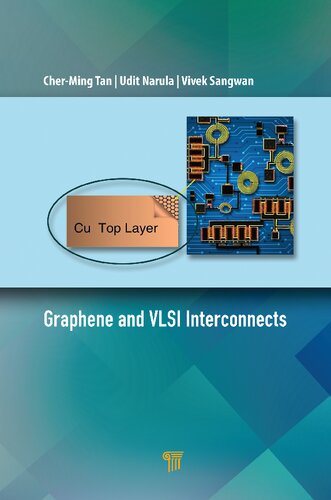

Most ebook files are in PDF format, so you can easily read them using various software such as Foxit Reader or directly on the Google Chrome browser.
Some ebook files are released by publishers in other formats such as .awz, .mobi, .epub, .fb2, etc. You may need to install specific software to read these formats on mobile/PC, such as Calibre.
Please read the tutorial at this link: https://ebookbell.com/faq
We offer FREE conversion to the popular formats you request; however, this may take some time. Therefore, right after payment, please email us, and we will try to provide the service as quickly as possible.
For some exceptional file formats or broken links (if any), please refrain from opening any disputes. Instead, email us first, and we will try to assist within a maximum of 6 hours.
EbookBell Team

5.0
80 reviewsCopper (Cu) has been used as an interconnection material in the semiconductor industry for years owing to its best balance of conductivity and performance. However, it is running out of steam as it is approaching its limits with respect to electrical performance and reliability. Graphene is a non-metal material, but it can help to improve electromigration (EM) performance of Cu because of its excellent properties. Combining graphene with Cu for very large-scale integration (VLSI) interconnects can be a viable solution. The incorporation of graphene into Cu allows the present Cu fabrication back-end process to remain unaltered, except for the small step of “inserting” graphene into Cu. Therefore, it has a great potential to revolutionize the VLSI integrated circuit (VLSI-IC) industry and appeal for further advancement of the semiconductor industry. This book is a compilation of comprehensive studies done on the properties of graphene and its synthesis methods suitable for applications of VLSI interconnects. It introduces the development of a new method to synthesize graphene, wherein it not only discusses the method to grow graphene over Cu but also allows the reader to know how to optimize graphene growth, using statistical design of experiments (DoE), on Cu interconnects in order to obtain good-quality and reliable interconnects. It provides a basic understanding of graphene–Cu interaction mechanism and evaluates the electrical and EM performance of graphenated Cu interconnects.